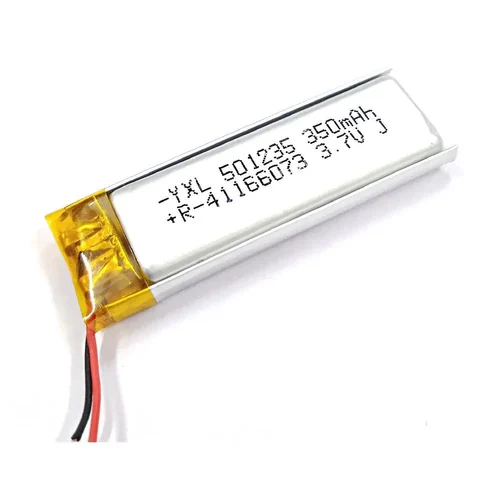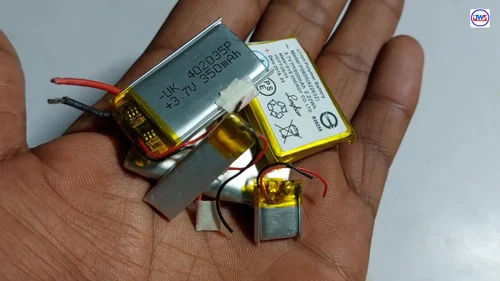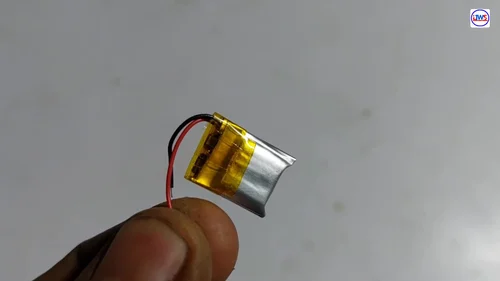3.7V 350mAh Model -YXL 501235 Lipo Rechargeable Battery
₹199.0
| Weight | 11 grams |
| Voltage | 3.7V |
| Category | 1S 3.7V Lipo |
| Battery Type | Rechargeable Battery |
| Rated Capacity | 350mAh |
The YXL 501235 is a rechargeable lithium polymer battery with a 3.7V voltage and 350mAh capacity. It is commonly used in small electronic devices and weighs approximately 11 grams. It uses a JST-PH 2.0mm 2-pin connector for charging and discharging and should only be charged with a LiPo-compatible charger to avoid damage or fire hazard.
Additional Information:
- Delivery Time: 48 hr
- Packaging Details: Typically has a plastic packaging, weighs around 10-20 grams, and may come with different connectors and a charging cable. It also has safety features to prevent damage and ensure safe operation.
You must be logged in to post a review.
Q & A
Electrochemical batteries, such as lithium-ion batteries, are widely used in various applications, including electric vehicles, portable electronics, and renewable energy storage. While they offer many benefits, their sustainability depends on several factors.
Resource Extraction: The production of electrochemical batteries involves the extraction of raw materials, such as lithium, cobalt, nickel, and graphite. The sustainability of batteries depends on responsible mining practices, reducing environmental impacts, and ensuring the rights and well-being of local communities involved in extraction.
Energy Consumption: The manufacturing process of batteries requires energy, and the sustainability of batteries depends on the energy sources used. If the energy comes from fossil fuels, it contributes to greenhouse gas emissions and climate change. However, using renewable energy for battery production significantly improves their sustainability.
End-of-Life Management: Proper disposal or recycling of batteries is crucial for their sustainability. Batteries contain hazardous materials that can harm the environment if not handled correctly. Establishing effective recycling programs to recover valuable materials from spent batteries reduces the need for raw material extraction and minimizes waste.
Lifetime and Performance: The longer a battery lasts and the more energy it can store over its lifetime, the more sustainable it becomes. Improving battery durability, energy density, and cycle life reduces the need for frequent replacements, leading to a lower environmental impact.
Circular Economy: Implementing a circular economy approach can enhance the sustainability of electrochemical batteries. This involves designing batteries for easy disassembly, reuse, and recycling, enabling the recovery of valuable materials and reducing waste.
Significant efforts are being made to improve the sustainability of electrochemical batteries. Researchers are exploring alternative materials, such as solid-state electrolytes, to reduce reliance on scarce resources and increase safety. Additionally, advancements in battery recycling technologies and the development of closed-loop supply chains are being pursued to minimize waste and maximize resource recovery.
It's important to note that while electrochemical batteries have sustainability challenges, they are still considered a valuable technology in the transition towards a low-carbon future. Continued research and innovation, coupled with sustainable practices across the entire battery life cycle, are essential to improve their overall sustainability.
General Inquiries
There are no inquiries yet.



















Reviews
There are no reviews yet.